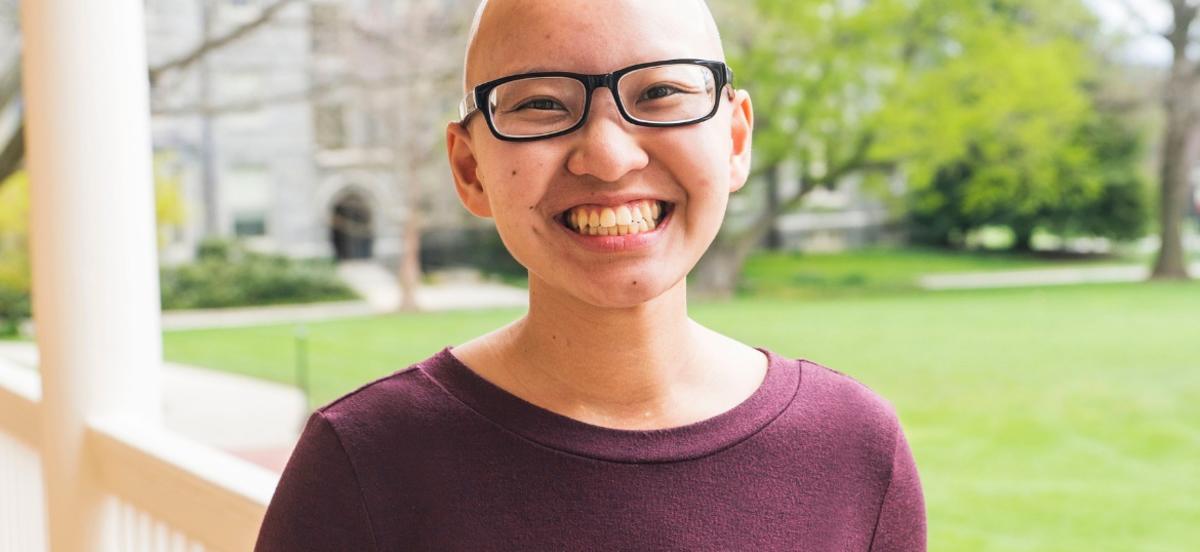Fellowship Spotlight: Claire Dinh '16, Fulbright English Teaching Assistant in Germany

Details
A Fulbright English Teaching Assistant (ETA) grant allows a young professional to help teach English in schools or universities overseas. Claire Dinh was one of the four Haverford students chosen for a grant in 2016.
What did you learn about yourself and the world through your Fulbright experience?
During my Fulbright year in Frankfurt, Germany, I gained a deeper appreciation for how powerful (and underrated) global citizenship can be in promoting awareness, tolerance, and appreciation of other cultures and communities. Out of 140 teaching assistants, I was one of 20 selected to work closely with minority students. When sharing knowledge of American culture with 200 students ages 6 to 17, I encouraged them to learn from peers whose backgrounds differed from their own.
In the wake of the 2016 U.S. presidential election, I also co-led an open letter signed by over 1,500 Fulbright participants and alumni worldwide [to express our concerns], growing the readership to over 20,000 individuals. This experience drove the point home for me that in our global community, we have more that brings us together than divides us.
How did your Fulbright experience contribute to what you’re doing now?
I’m currently a medical student at Harvard. Like any other language and culture, medicine requires learning, with a feedback loop of communication, and the hope that one day, learners finally become proficient enough to teach and share the language and culture with others too.
On a more practical level, I gleaned insight from German culture to hone my skills as a future educator. As an English Teaching Assistant, I experienced a diverse range of teaching and learning styles, and I more readily adapted to students’ needs. I learned that the most effective teachers build their students’ confidence by pushing the limits of their understanding. They are essentially telling their students, “I know you can handle this.” For example, a first-grade teacher spoke English fluently with her students, who knew only colors, numbers, and three-word sentences in English. The positive effects of this method could not be clearer: during break, her students took the initiative to practice English with me.
What advice or encouragement do you have for prospective applicants?
As with any application, remember that the reviewers of your application are not mind readers. Be explicit. Concisely convey the personal, educational, and professional experiences that make you uniquely you. Recognize that as a prospective cultural ambassador, you have something special to offer the world out there and the people in it, but you should still have the humility to admit that there is still so much left to learn.
Also, I took upwards of 20 drafts for each of the 2 essays required for the application! It’s okay to take risks as you begin to explore what you want to share, but be mindful of the time crunch as you then begin to refine your writing.



